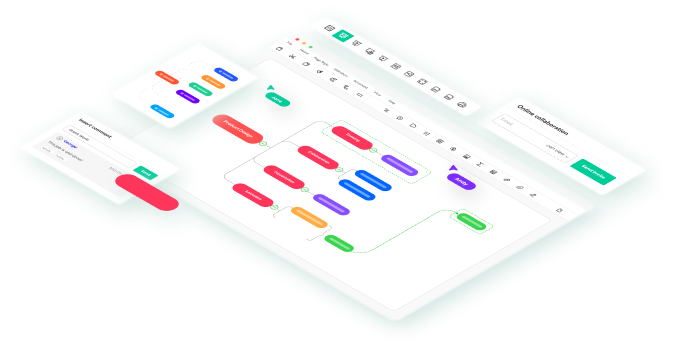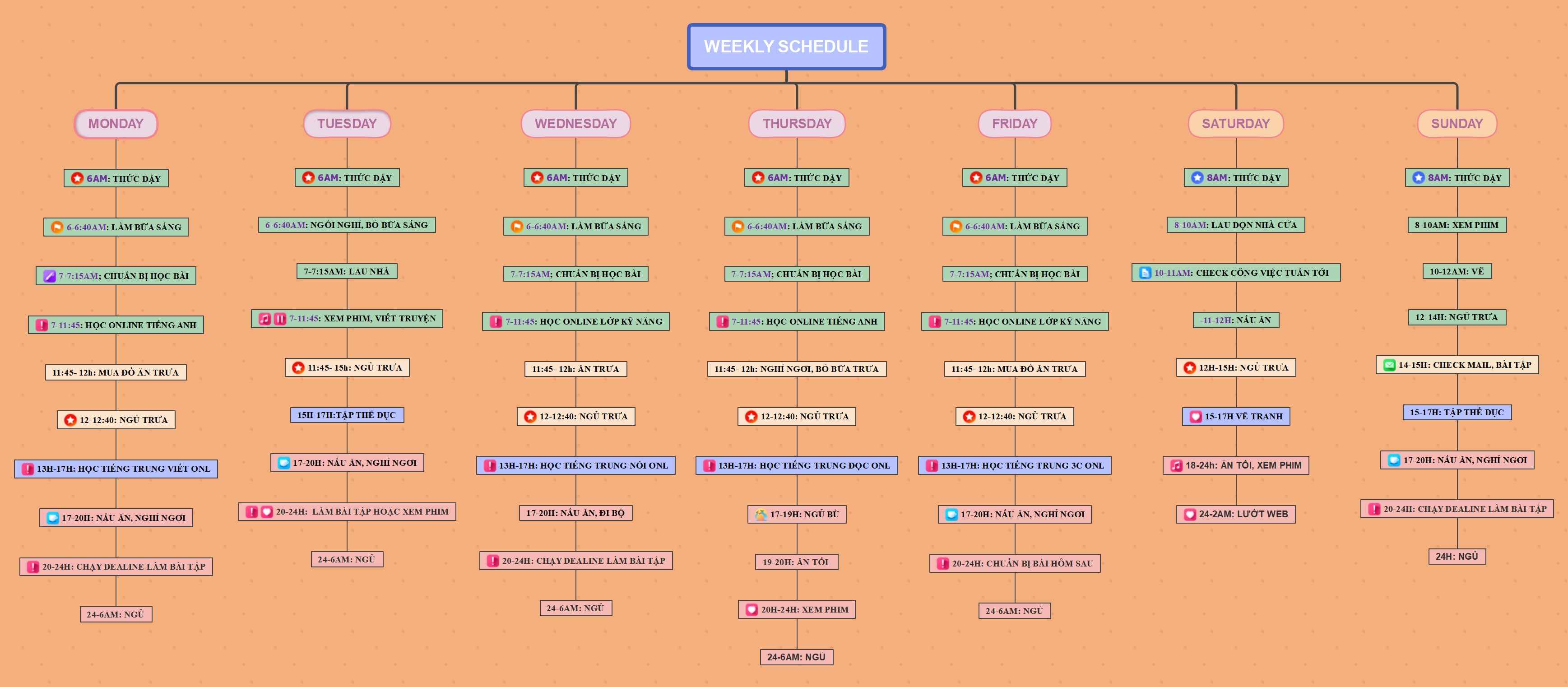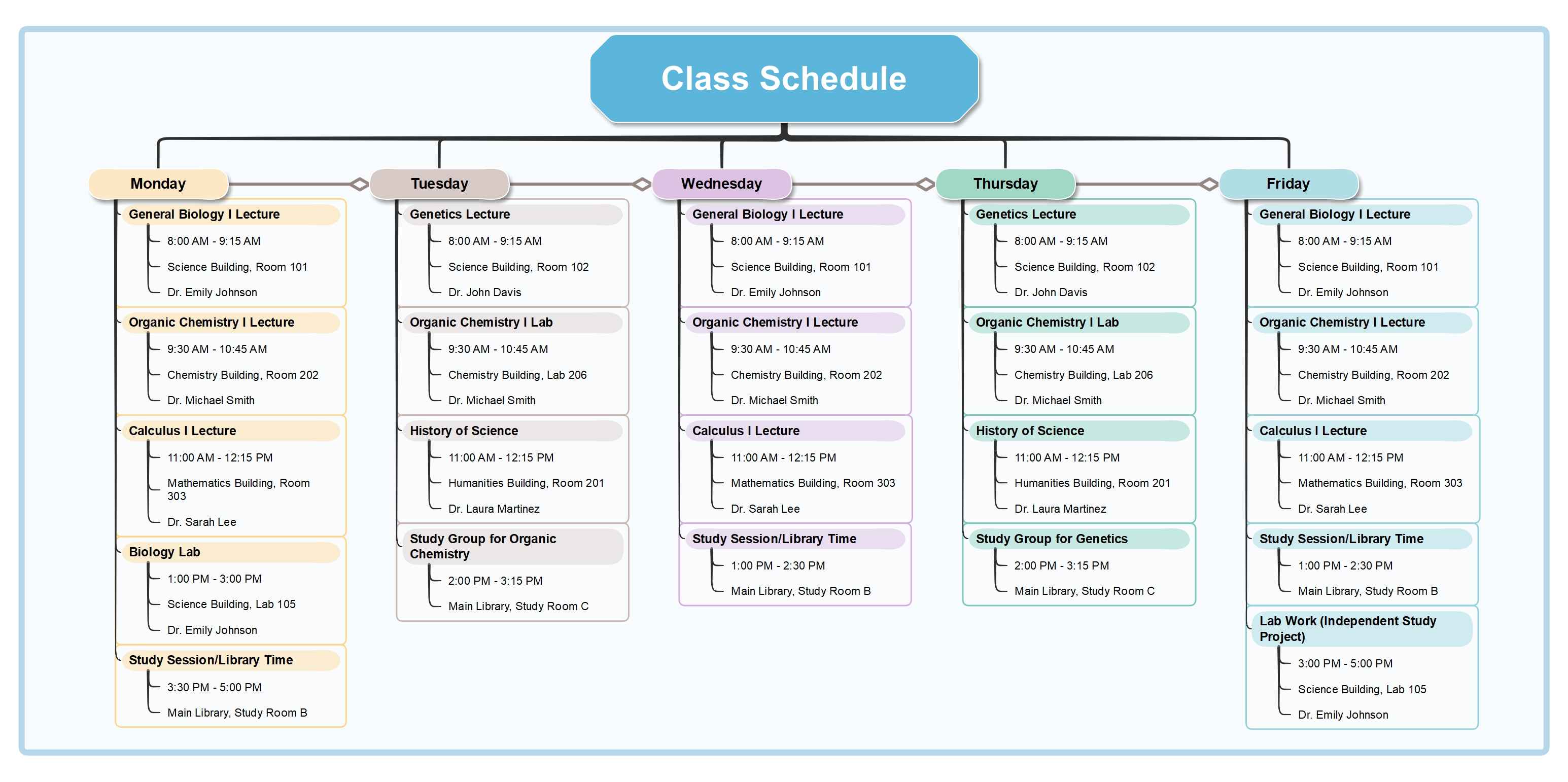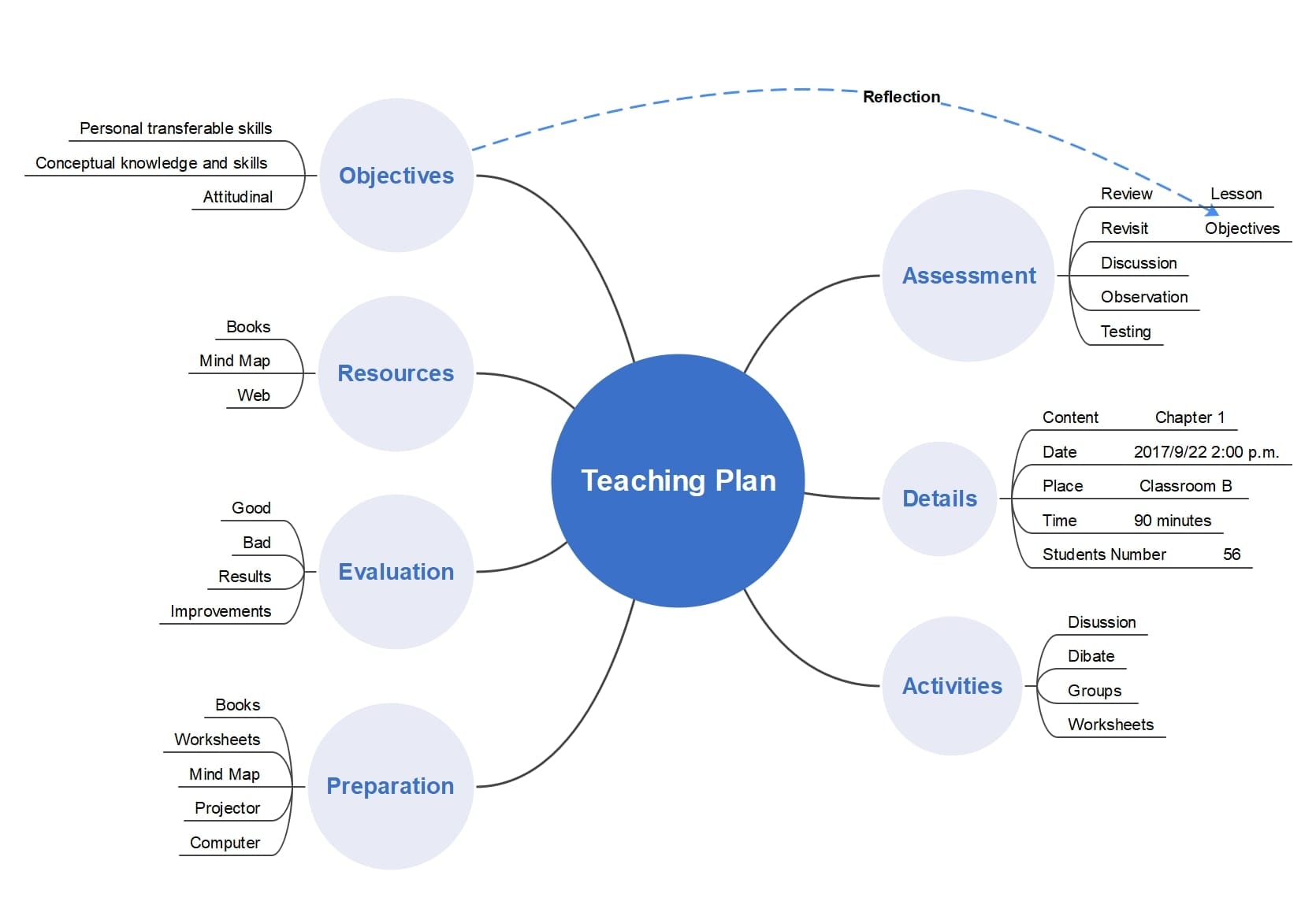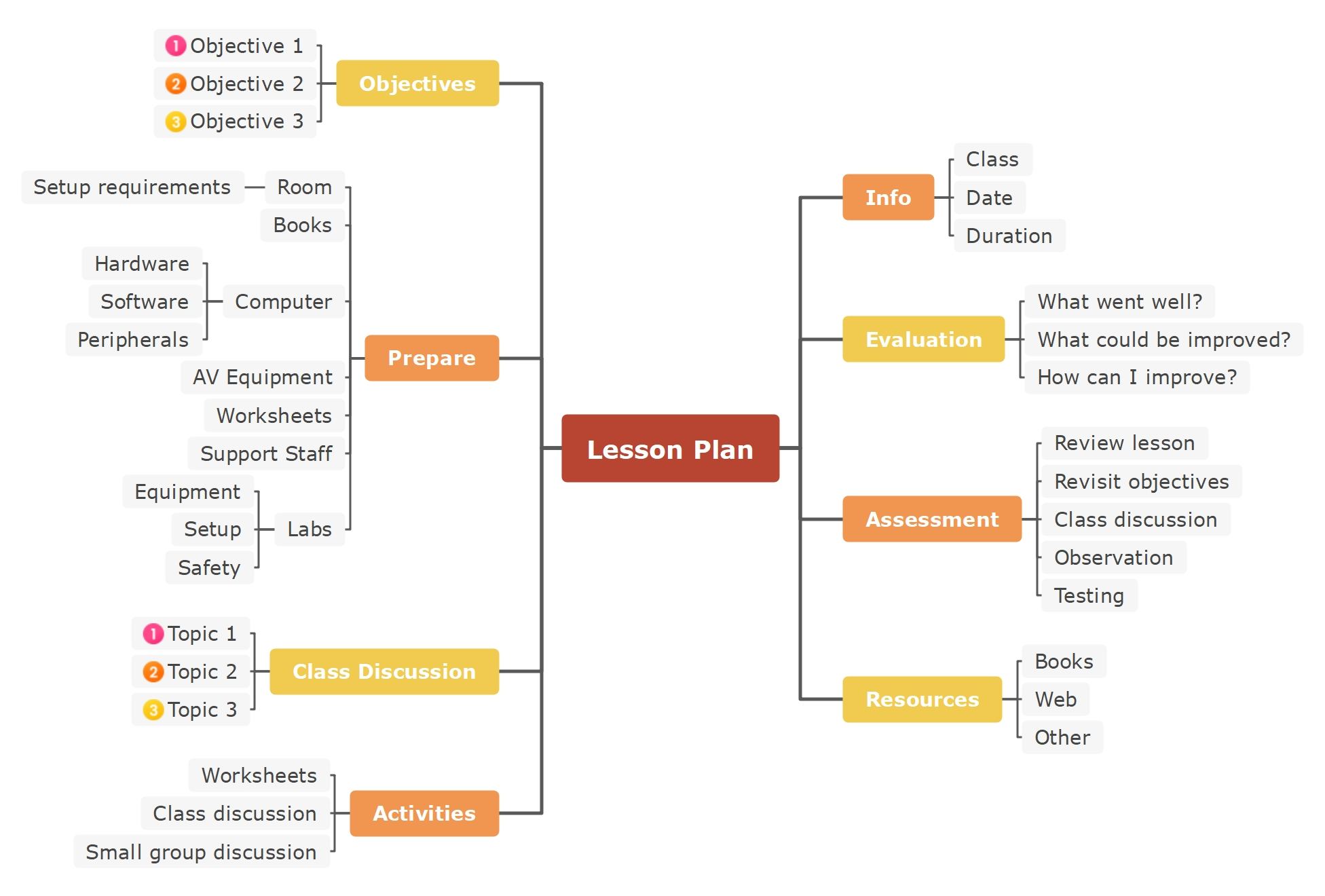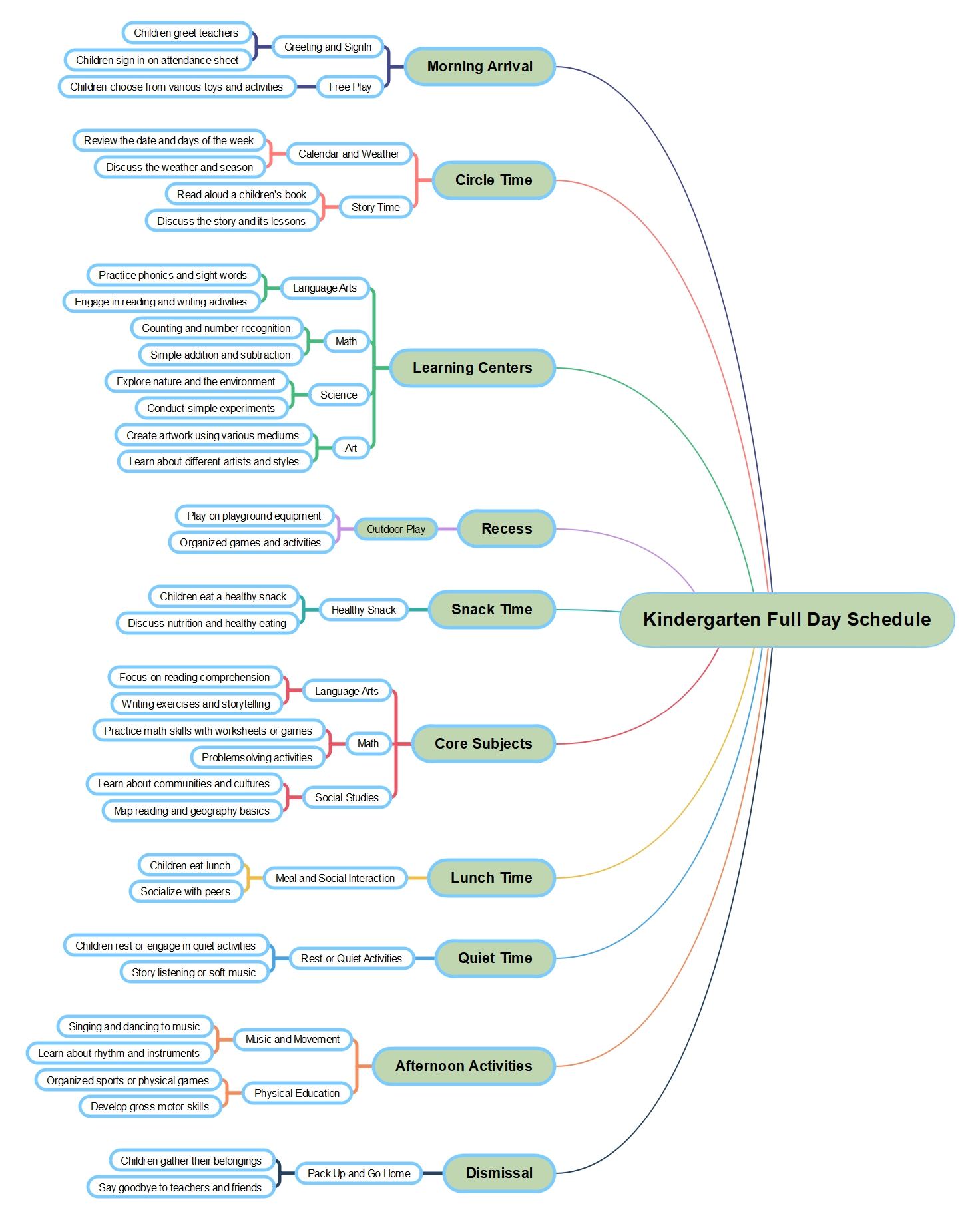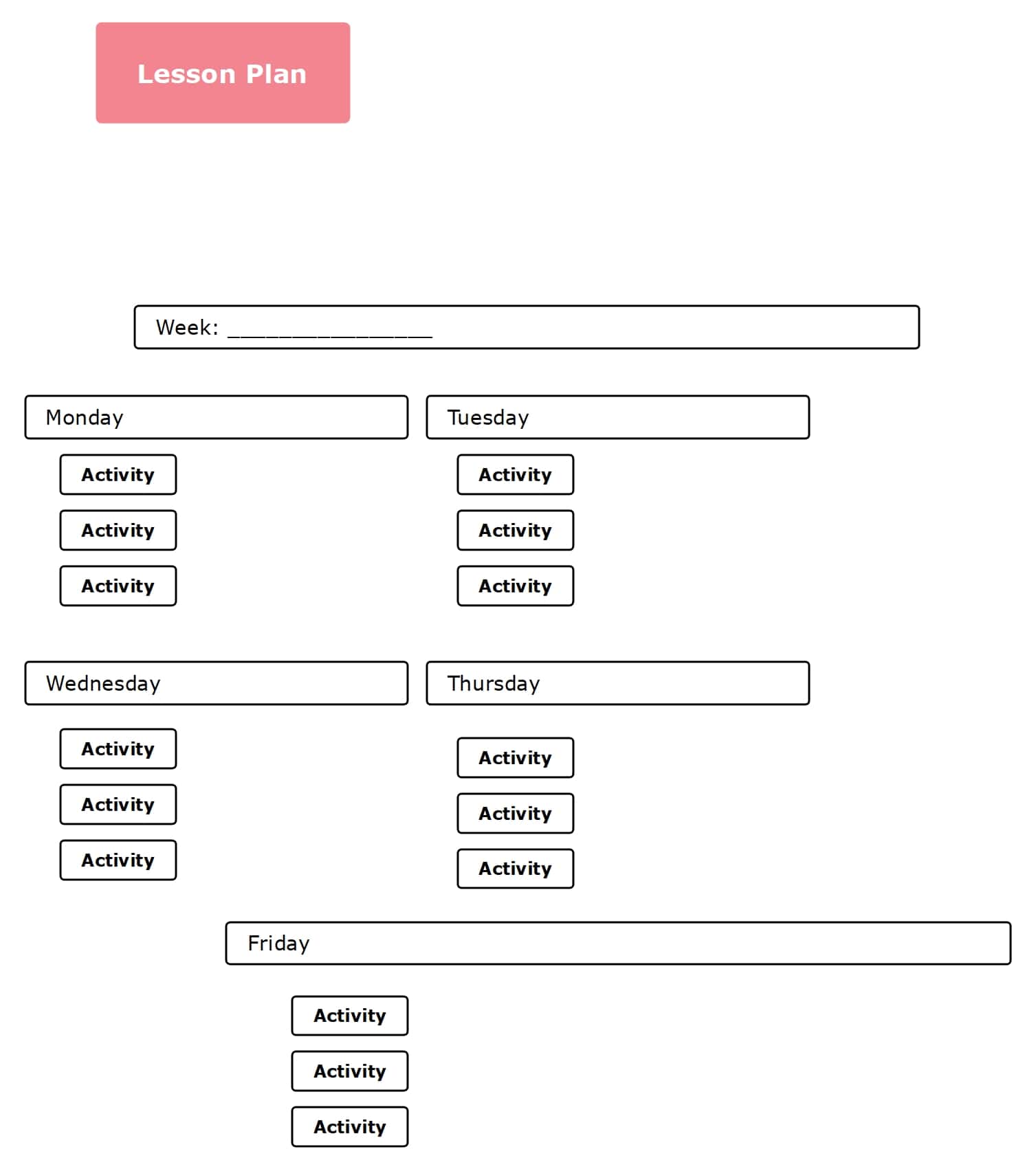The busy schedule of educators and students has made time inarguably the most significant resource. Hence, it’s no surprise that the one with no organization and discipline is fated to fail.
Thankfully, a well-organized class schedule is your savior. It helps you manage time, track your academic progress, and streamline the academic planning for assignments, classes, exams, etc. But how to know what makes a good class schedule?
Worry not, here are a few class schedule examples, along with a tutorial, to guide you on how to make one. Edit them as they are or make your own from scratch.
In this article
7 Class Schedule Examples
Having a class schedule can ensure improved academic planning and organization in studies. Check out these examples of classroom schedules and plan your week.
Weekly Classroom Schedule
This weekly class schedule example is designed for educators and students to organize their entire day. It gives you a time breakdown to sort classrooms, assignment deadlines, and society meetings. The overall time stamps help you stay motivated and focused. You can edit it further to include checklists that would help you in tracking your progress.
Class Schedule for Educators
As a tutor, you can get distracted by things in the background - meetings, conferences, workshops, and more. But, no longer with this class schedule example. It has a master guide to all your lectures with time stamps, reminders, and subjects. The creator has also tried to incorporate visual clarity by color-coding days and classes.
Teaching Plan for Classroom
Here comes yet another teaching plan for your classrooms, outlining routine activities, from assessments to lecture preparation, and resources. This customizable example can help you tailor these tasks for any lecture. Having such an organized plan for class can give you a better sense of time.
Lesson Class Schedule Example
This classroom schedule plan is carefully curated to aid educators with organized lectures. It has color-coded categories for activities, resources, discussions, and evaluations. You can simply duplicate it for each day of the week in your free time to ensure a smooth delivery throughout. Plus, it’s editable. So, you can adjust the slots and categories to your needs.
Weekly Class Schedule Example
Treat this classroom schedule example as your dashboard. Add lecture titles, time stamps, professors, and more. Follow due dates for assignments and exams to be on track. And don’t restrict yourself. Add extracurricular activities like a coffee break, catching up with friends, and more to never miss out on things that matter.
Kindergarten Class Schedule Example
This kindergarten class schedule is an excellent approach to teaching kids. It plans the entire day with specific slots for studying, extracurricular activities, recess, and more. While planning one for yourself, always remember, consistency and discipline are key characteristics to engage them in the long term. Plus, make it flexible to encourage independence with this routine, like letting them pick subjects, choose activities.
Weekly Lesson Schedule Example
Here is a blank class schedule for students and tutors with days and activities. You can extend it further to include references, time stamps, and lectures. Color-coding categories and adding priority numbers would instantly elevate this template.
How to Create a Weekly Class Schedule using EdrawMind?
A good class schedule example has flexibility, visual clarity, and organization. EdrawMind made it easier to incorporate all these elements with minimal effort, thanks to its preset structures, clipart, and non-linear branches. Let’s see how we can replicate similar weekly class schedules using this tool.
Step 01: Enter the Blank Canvas
- Begin by downloading and installing the EdrawMind desktop app or try its online version.
- Register your email if it’s your first time or log in to your Wondershare account.
- Visit the Create button from the dashboard and click Blank Mind Map to enter the editing panel.
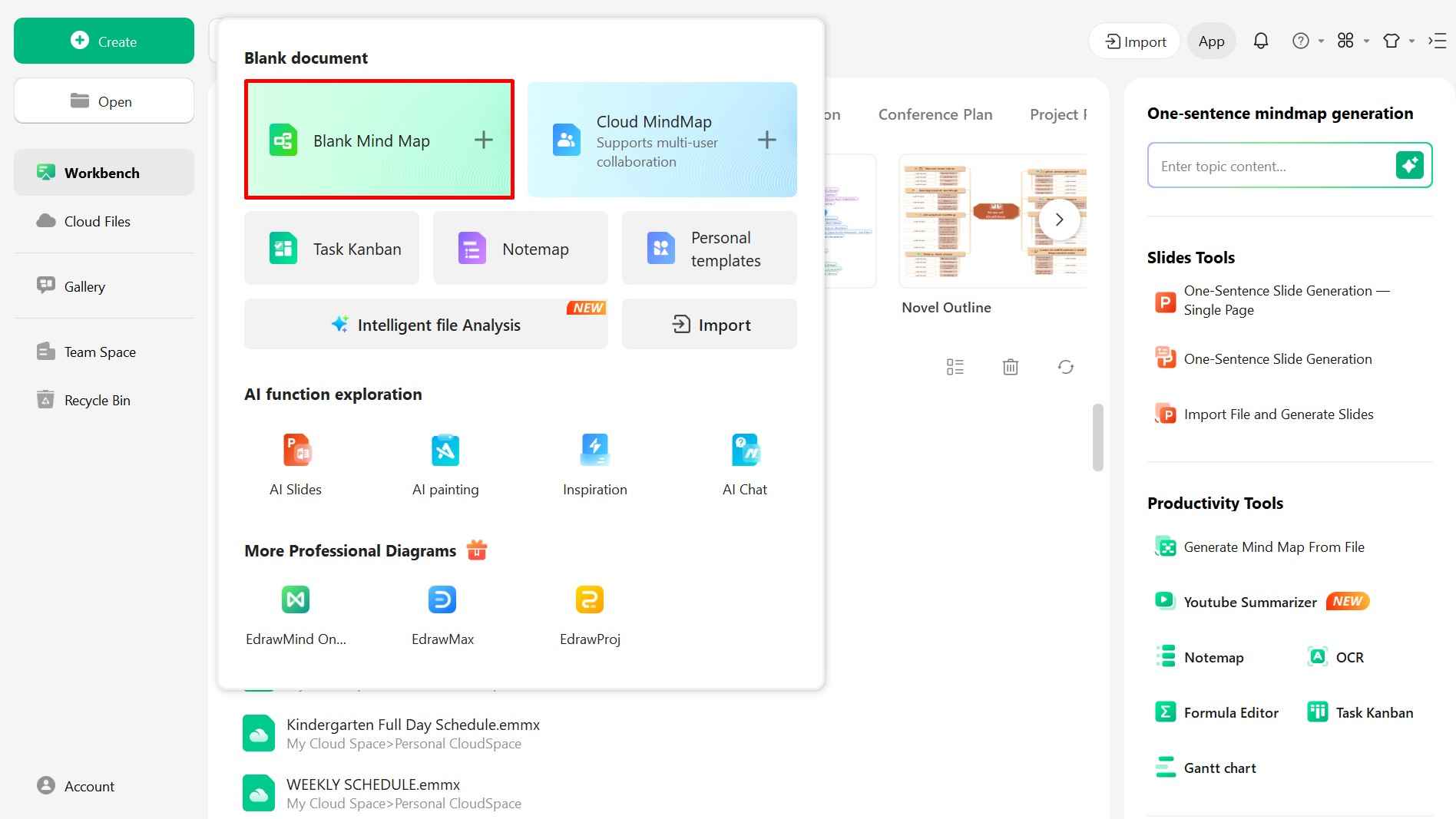
Step 02: Add Weekdays
- Once on the dashboard, you will see the preset mind map structure. It’s time to label it.
- First, label the Main Idea box as Class Schedule.
- Next, extend the branches to seven days of the week. You can do this from the Topic menu on the Start tab at the top.
- Double-click these categories and name them as the days of the week.
- You can modify the font size, color, and style from the on-screen menu.
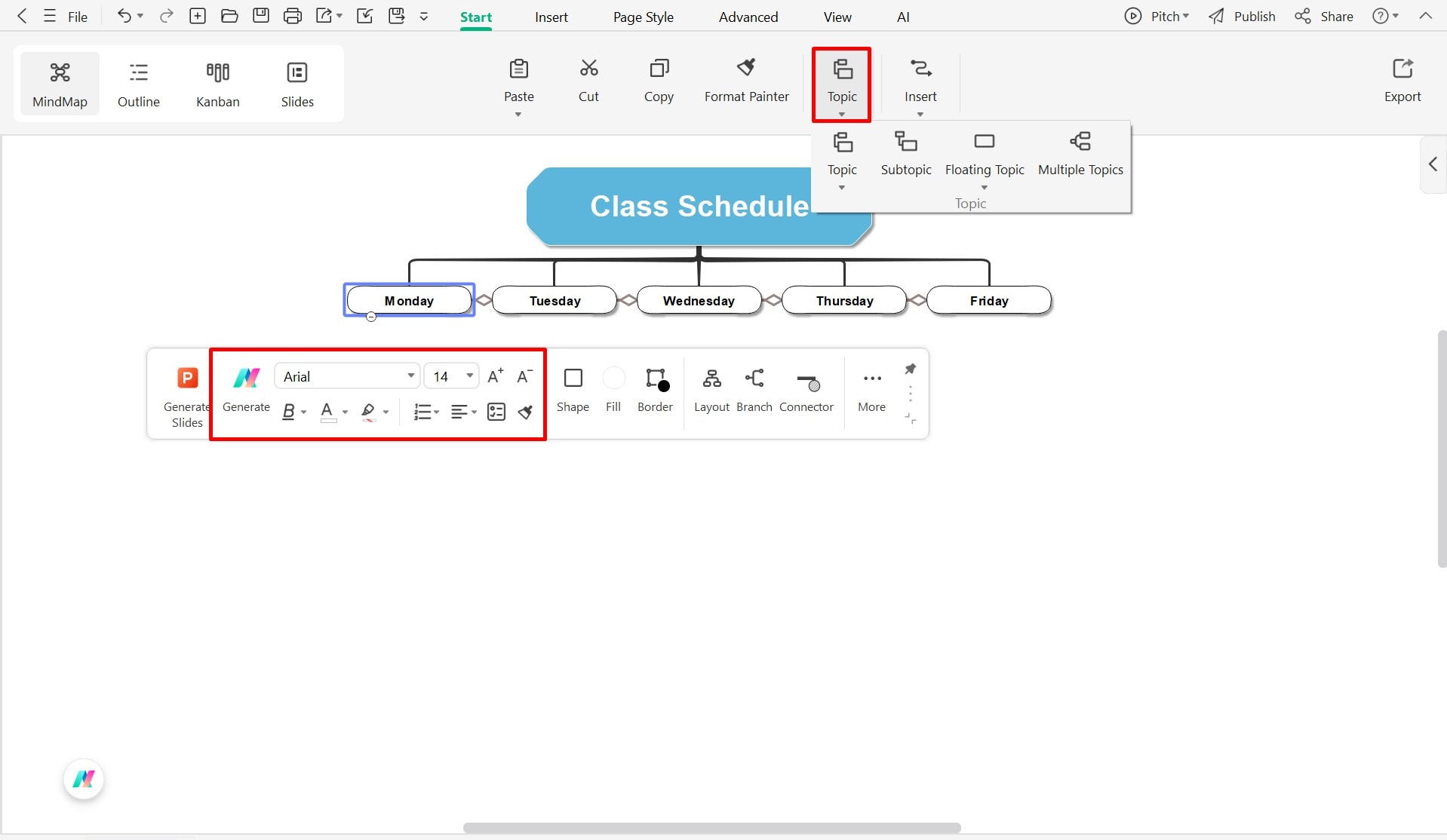
Step 03: Add Activities
- Proceed further and plot activities in your class schedule. Here is how you can do it.
- Go to the Start tab and click Topic.
- Choose a sub-topic and expand branches one by one for each activity.
- Label these activities as per your need. For instance, time stamps, lecture titles, etc.
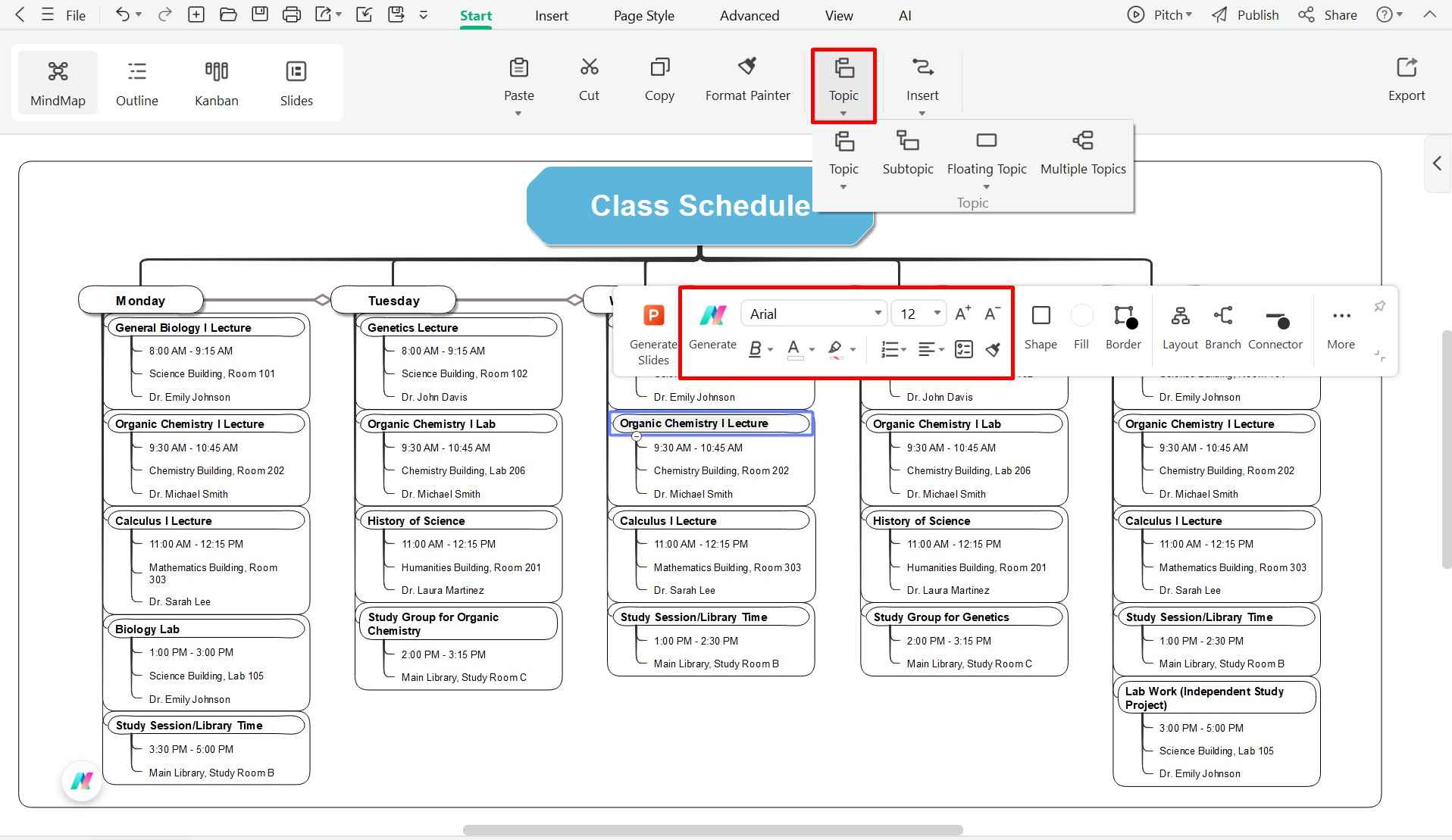
Step 04: Color-Code the Schedule
- Satisfied with the timetable? You can stop here technically, but it’s important to make it readable. So, let’s color-code the activities.
- Select any category (days, activities, etc).
- Choose your desired fill, border, and text color for this category.
- Repeat this step for each category, but with a different color. This will ensure visual harmony in your schedule.
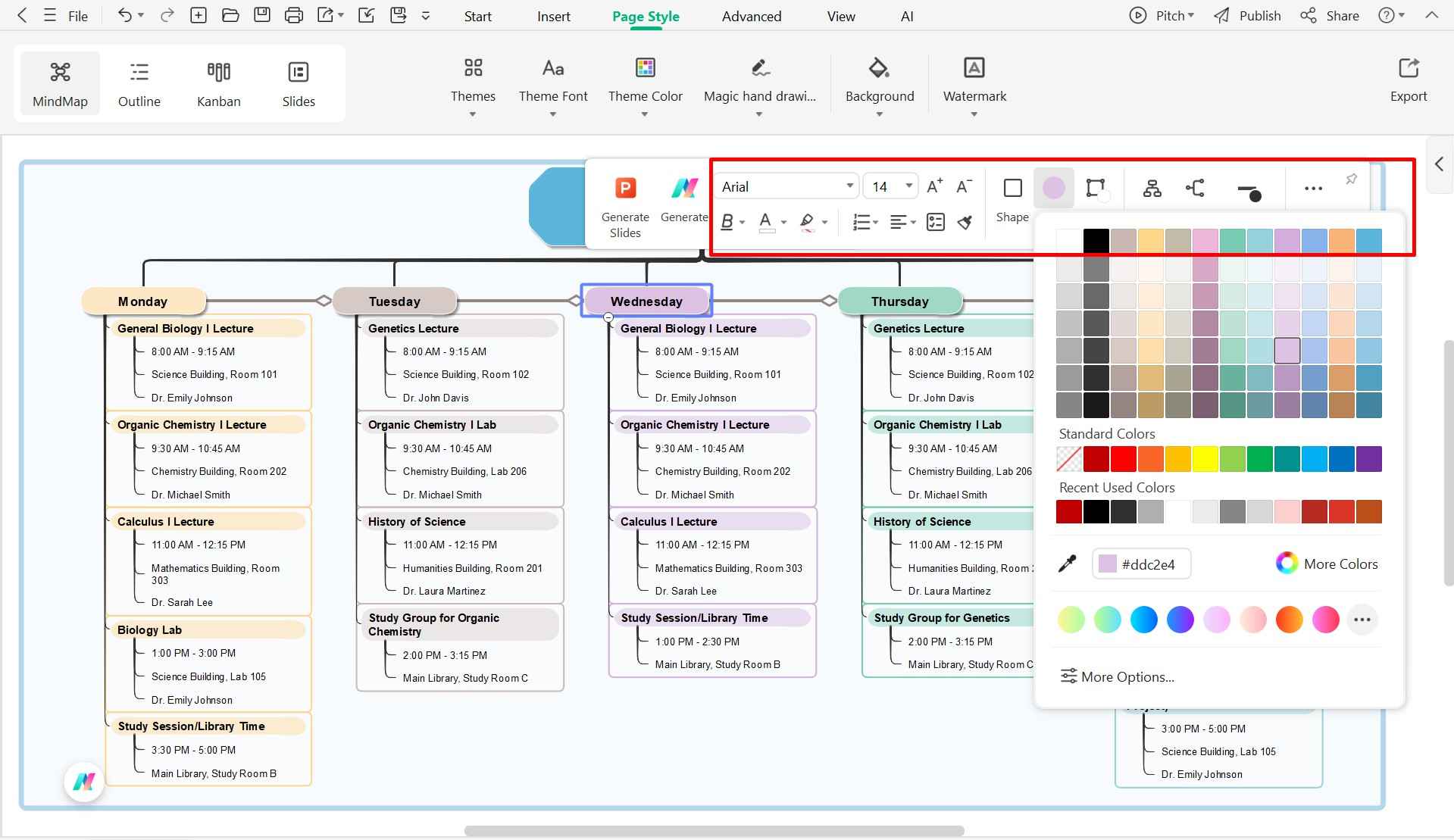
Step 05: Prioritize Daily Activities
- Want to go a step further in bringing clarity to your class schedule? Add priority icons, progress bars, and more. For this,
- Visit the right-side customization panel.
- Go to the Clipart bar.
- Drag and drop your desired icons to the activity boxes in the diagram.
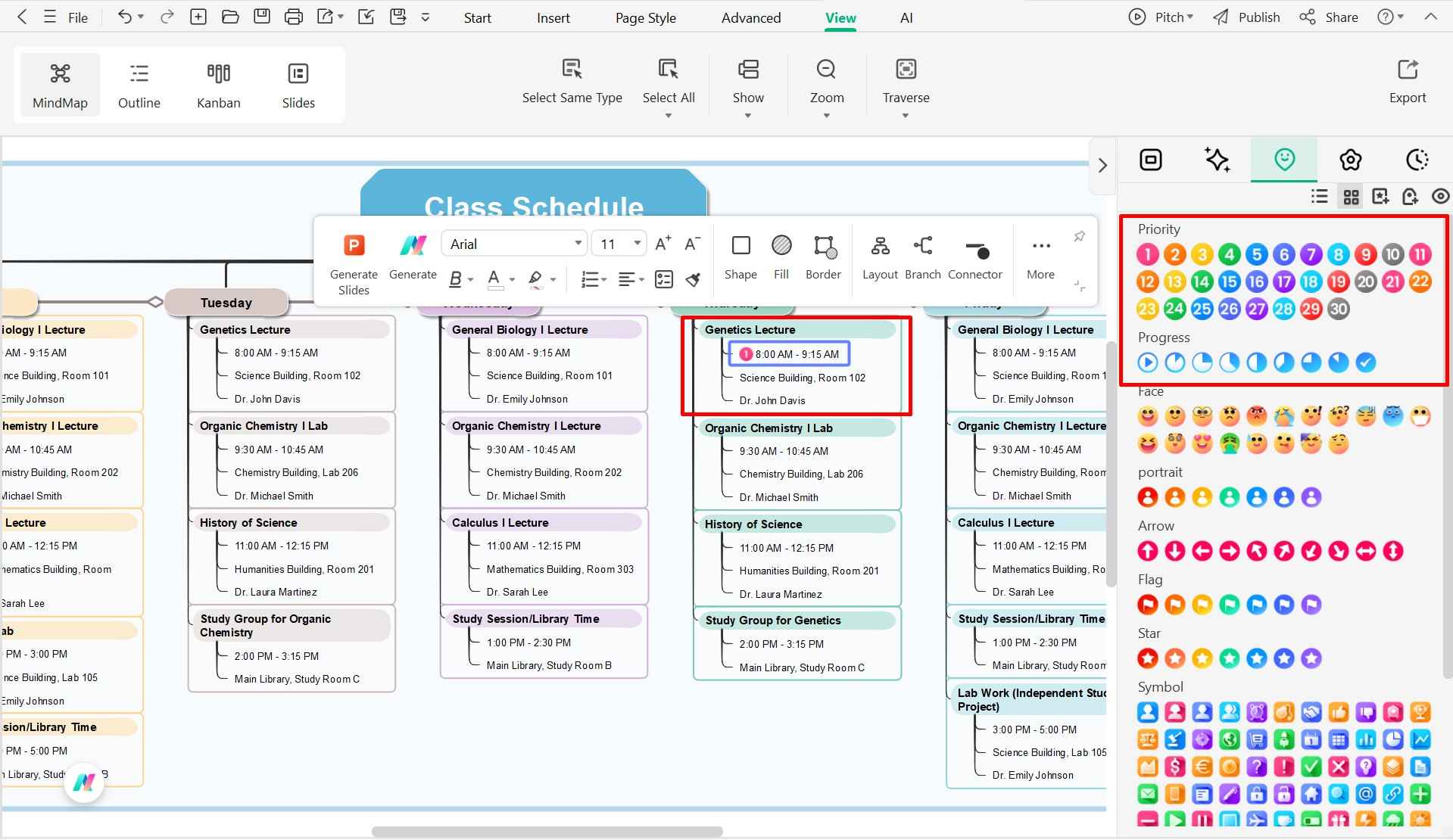
Step 06: Download and Share!
- Congratulations, your class schedule template is all ready. Download or share it however you like.
- Visit the Export icon from the quick-access toolbar and choose your desired format. EdrawMind supports over ten formats, including PNG, JPG, JPEG, Visio, Word, PPT, and PDF.
- Alternatively, click Share from the top-right quick-access, adjust permission to who can view, edit, and comment on your diagram, and distribute the system-generated link with the people you want.

What Should You Avoid While Designing a Class Schedule Template?
Having a class schedule template is not enough. You must be critical enough to choose a well-curated example that is flexible and adaptable enough to your needs. To ensure this, here are some things you should always avoid when choosing a template.
- Never choose complex templates: Overly complex class schedule samples with too many intricacies are hard to update, especially if you are starting. Always remember, simplicity is directly proportional to usability. A minimalist yet well-designed schedule gives you enough avenues to change things instantly on the go.
- Fixed time slots are a big no: Avoid templates with strict time entries. These schedules limit you from making adjustments to your requirements.
- Say no to rigid timetables: If your timetable has no scope for adaptation, it is of no use. Always choose a flexible template to adapt to different schedules (having breaks, co-curricular tasks, studying time, etc).
- Don’t undermine resources: Most people do not add resource links to their lesson schedules. This might be technically okay, but you could do better. Adding assignment docs, reference articles, and other material can help you streamline academic planning beforehand.
- Avoid unorganized layouts: A well-put class schedule template has a clear layout, preferably with color-coded categories and a distinct font style. If the template has random colors and overwritten labels, it is only going to compromise the visual clarity.
Wrapping Up!
Now you know how to choose the right class schedule example and modify it to your needs. Want more help on your academic journey? Try EdrawMind. It is an advanced mind mapping tool that helps you sort ideas, take notes, and produce slides with AI help. It comes with a free version, so give it a shot.



